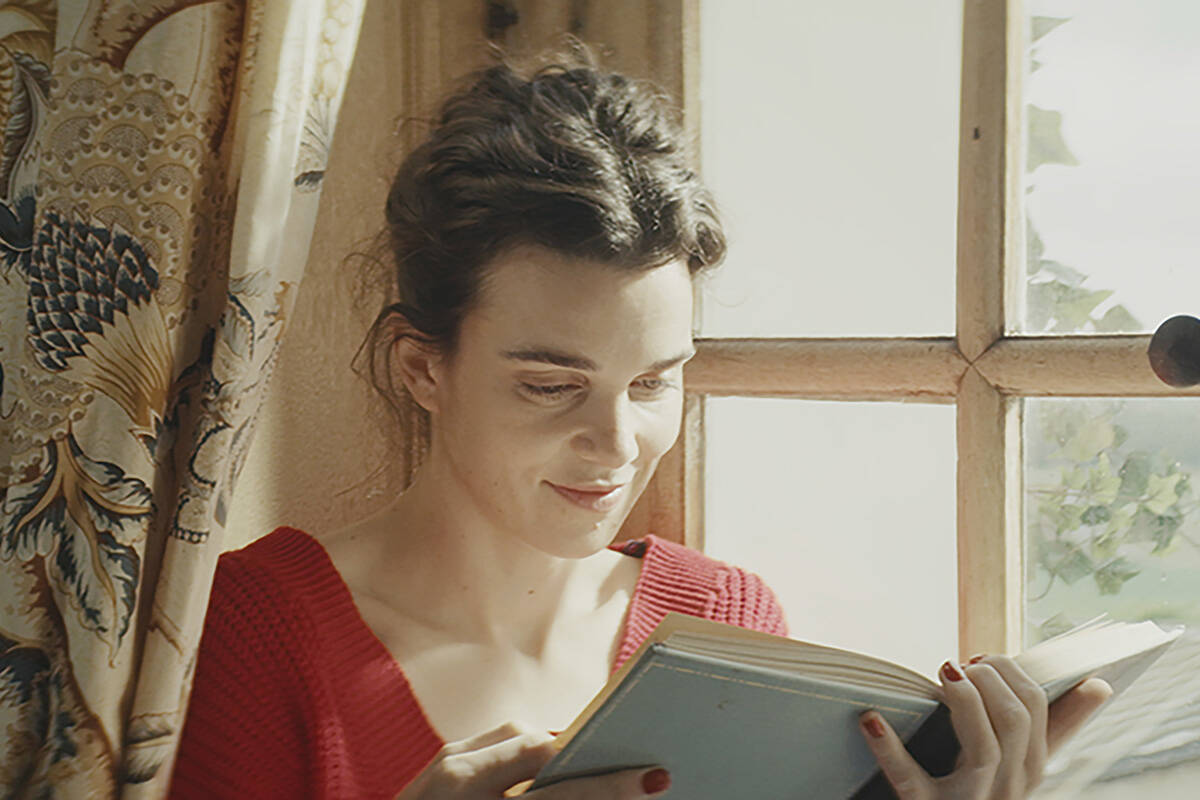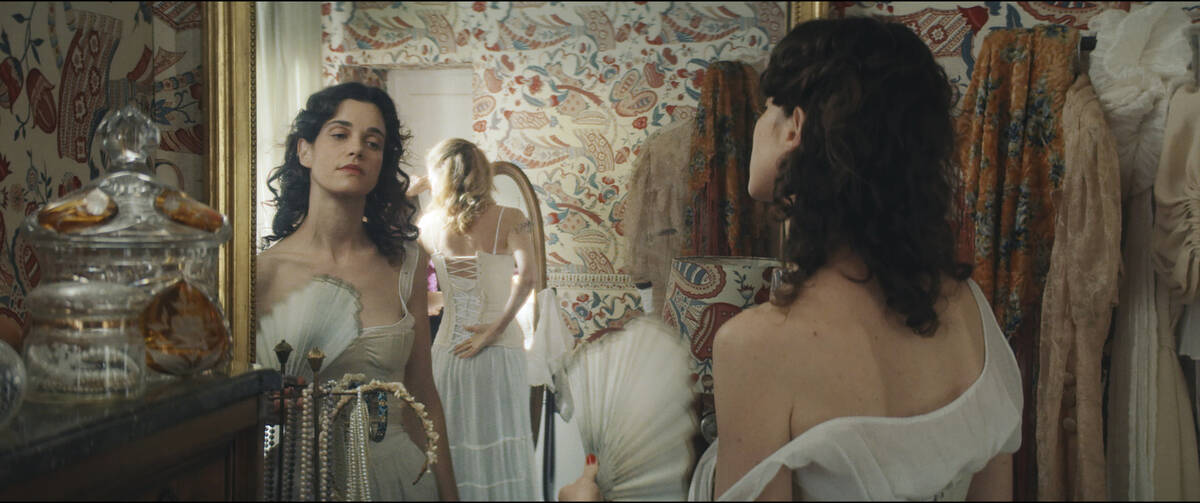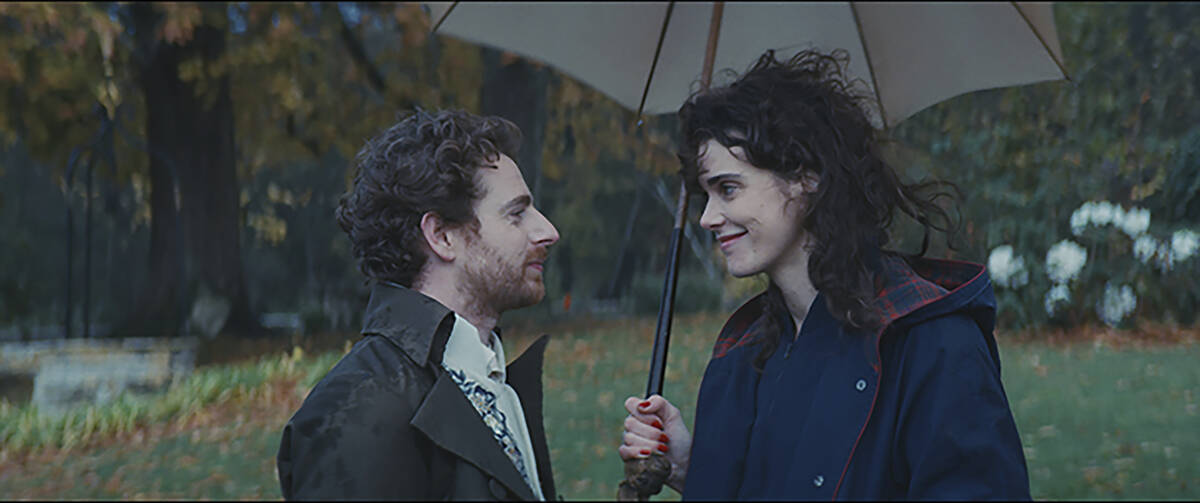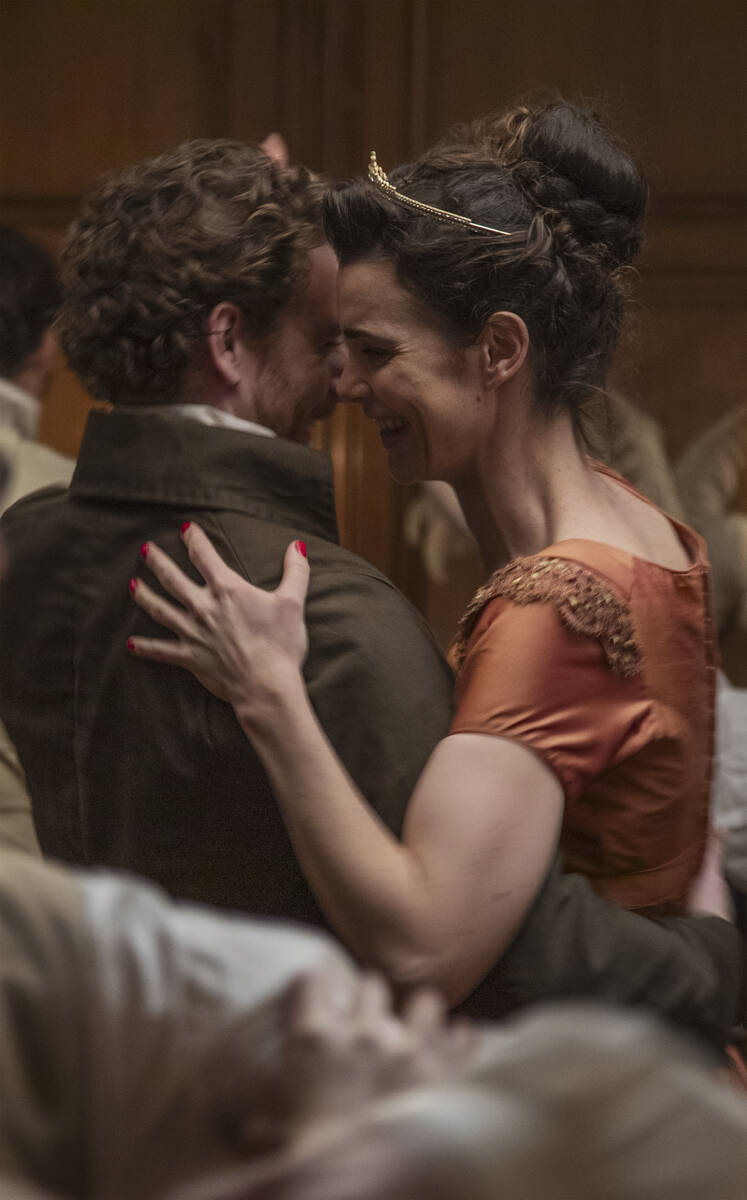Modern love with a Regency twist in film ode to Jane Austen
Repressed passions, thwarted ambitions and Empire-waisted gowns aren’t just Regency-era relics in “Jane Austen Wrecked My Life,” a low-tonnage pleasure bomb aimed straight at anyone who finds themselves at sixes and sevens with the conclusion of “Miss Austen.”
That recently aired “Masterpiece Theatre” series centered on Jane Austen’s sister, Cassandra, who famously burned some of the famous author’s letters, leading to centuries of mystery and conjecture. “Jane Austen Wrecked My Life,” written and directed by Laura Piani, isn’t nearly so fraught or historically freighted. Set in the present day, this genteel bonbon stars Camille Rutherford as Agathe, a would-be writer working as a clerk in Paris’ storied Shakespeare and Co. bookstore; the film opens with Rutherford performing a sinuous dance through the shop, caressing books to the R&B ballad “Cry to Me.”
The sequence suggests a celebration of bibliophilia at its most erotically charged; if the ensuing movie turns out to be considerably tamer than advertised, it still checks myriad boxes with the flourish of a feather-tipped pen. Agathe has been working on a novel at the expense of her love life; when she winds up snuggling with her best friend and co-worker Félix (Pablo Pauly), most filmgoers will see the friends-into-lovers romance coming down the Champs-Élysées.
But things get complicated when Agathe earns two weeks at the Jane Austen Residency in England. It’s there that she meets Oliver, the slightly grumpy son of the eccentric couple who run the peaceful country retreat. Played with a perpetually — and seductively — cocked eyebrow by Charlie Anson, Oliver meets all the criteria for the classic leading man in the Austen mode: saturnine, socially awkward and inexplicably, wildly attractive.
Piani arranges her players against an appealing backdrop of flowers, fabrics, candles and pianos, from which strains of Schubert can be heard at every convenient opportunity. (Peter Von Poehl composed the lovely guitar-and-woodwind score that nicely complements the classical pieces that dominate the soundtrack.) In fact, just about everything is convenient in “Jane Austen Wrecked My Life,” from a well-timed spot of car trouble and Agathe’s discovery that her British hosts speak flawless French to the fact that the Austen Residency traditionally culminates in — what else — a ball. The story, held at well-mannered arm’s length by Piani, never gets too messy; even Agathe’s deepest psychological issues — a phobia that makes travel difficult and, later, the explanation of its traumatic roots — are handled with efficient, unfailingly discrete politesse.
Then again, as Agathe explains to one of her fellow authors (an unpleasant ideologue caricatured to tetchy extremes), realism isn’t the reason she gravitates toward literature or music or any other art form. Instead, she says — presumably speaking for the filmmaker herself — she seeks out “the poetic spark that doesn’t exist” in reality.
This is an excerpt from a Washington Post story.
Jane Austen Wrecked My Life
Three stars


















